FAQs
Psychedelic-Assisted Therapy Frequently Asked Questions
Is psychedelic-assisted therapy FDA-approved?
No psychedelic-assisted therapy is FDA-approved although clinical trials with psilocybin (from “magic mushrooms”) and MDMA are underway. Ketamine is FDA-approved as an anesthetic but can be used “off-label” in psychedelic-assisted therapy outside of clinical trials.
What conditions can be treated with psychedelic-assisted therapy?
Based on prior studies dating back to the 1950’s and more recent clinical trials, patients with depression, anxiety, PTSD, end-of-life distress, chronic pain, and/or drug or alcohol problems may be candidates for psychedelic-assisted therapy.
How is psychedelic-assisted therapy different than taking a psychedelic drug?
Psychedelic-assisted therapy is under a doctor’s supervision, includes counseling and clinical support before, during, and after the psychedelic dosing session, and the medication is part of an integrated program of psychotherapy and self-exploration as opposed to providing the drug as an isolated treatment. Taking a psychedelic drug outside of medical treatment or a clinical trial is in most cases illegal and not something we can recommend or assist with.
What if I have a “bad trip” during my psychedelic-assisted therapy?
The goal of psychedelic-assisted therapy is to facilitate accessing deep emotional issues such that they can be addressed in subsequent integration counseling sessions. The psychedelic treatment may bring up anxiety, fear, or difficult or challenging emotions or memories which is why we will be at your side to assist and support you before, during, and after the psychedelic session.
Research suggests that the intensity of the psychedelic experience is one of the best predictors of a therapeutic response, even when the experience is difficult or challenging. Therefore we do not consider a difficult session to be a “bad trip” but instead focus on supporting you and assisting you in maximizing the benefit you can obtain from the experience whether it is pleasant, challenging, or both.
What are some possible side effects of psychedelic-assisted therapy?
Blood pressure and heart rate typically increase during the dosing session and there is a risk of cardiovascular compilations especially in patients with cardiac disease. There is a very small risk of developing persistent perceptual disturbances or hallucinations after the psychedelic dosing session although this risk seems to be less than with recreational or non-medical psychedelic use.
There is a small risk of abuse or addiction to psychedelic drugs which is why psychedelic-assisted therapy involves a limited number of dosing sessions at the clinic under medical supervision followed by counseling and clinical monitoring. Like all therapies, there is a chance that psychedelic-assisted therapy will not work for your condition.
Is psychedelic-assisted therapy “microdosing?”
“Microdosing” psychedelics involves taking sub-psychedelic doses of a psychedelic on a regular schedule (e.g every 3 days) often chronically. Microdosing of psychedelics is purported to have beneficial effects on mood and cognitive performance but few controlled studies of microdosing have been done to date. In contrast, most clinical trials of psychedelic-assisted therapy use a full psychedelic dose, usually administered once or only a few times over several months.
Is psychedelic-assisted therapy covered by insurance?
Counseling and/or doctor visits before and after the psychedelic dosing sessions typically involve standard care and may be billable to insurance. The ketamine psychedelic dosing session, which involves several hours of treatment and monitoring under medical supervision at the clinic, is not currently billable to insurance and out-of-pocket cost is approximately $1,200 per session. Some costs for patients in clinical trials may be paid for by the sponsor.
Videos about psychedelic-assisted therapy
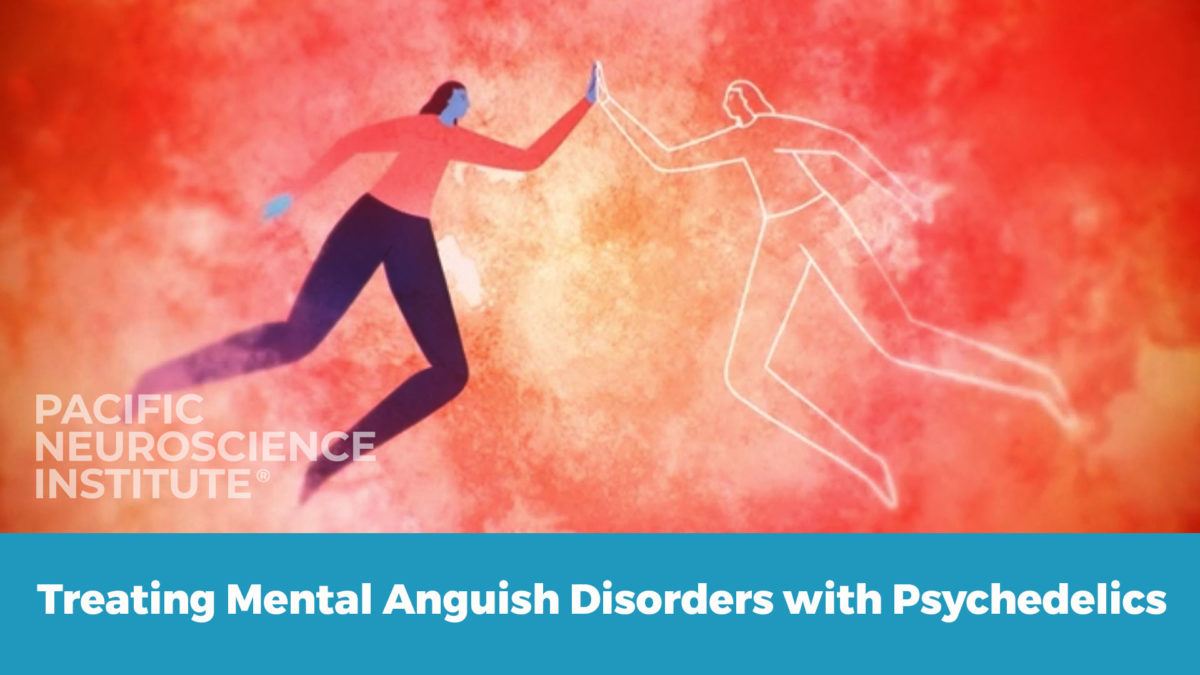 Treatment & Research In Psychedelics (TRIP) at Pacific Neuroscience Institute | Explainer
At PNI’s Treatment & Research In Psychedelics (TRIP) Program, we conduct clinical trails at the forefront of innovative and transformative medicine. TRIP, spearheaded by Daniel Kelly, MD and Keith Heinzerling,…
Treatment & Research In Psychedelics (TRIP) at Pacific Neuroscience Institute | Explainer
At PNI’s Treatment & Research In Psychedelics (TRIP) Program, we conduct clinical trails at the forefront of innovative and transformative medicine. TRIP, spearheaded by Daniel Kelly, MD and Keith Heinzerling,…
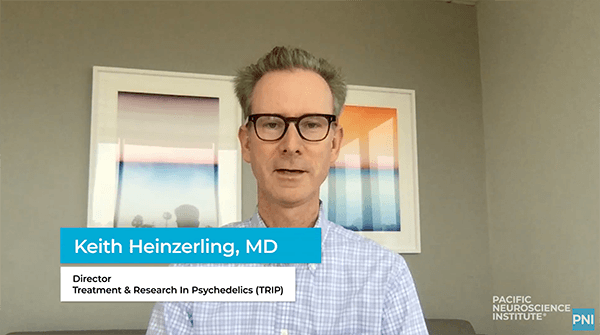 Psychedelic-Assisted Therapy at Pacific Neuroscience Institute
Dr. Keith Heinzerling is an addiction medicine specialist and Director of Treatment & Research In Psychedelics (TRIP) at Pacific Neuroscience Institute in Santa Monica, CA. Learn about how psychedelic-assisted therapy…
Psychedelic-Assisted Therapy at Pacific Neuroscience Institute
Dr. Keith Heinzerling is an addiction medicine specialist and Director of Treatment & Research In Psychedelics (TRIP) at Pacific Neuroscience Institute in Santa Monica, CA. Learn about how psychedelic-assisted therapy…
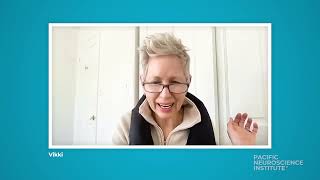 39. A Life-Changing Clinical Trial with Psychedelics | Vikki’s Grateful Patient Story
Vikki was walking her dog and listening to NPR in Santa Monica one day, when she heard an advertisement for an unusual medical trial. Pacific Neuroscience Institute was studying whether…
39. A Life-Changing Clinical Trial with Psychedelics | Vikki’s Grateful Patient Story
Vikki was walking her dog and listening to NPR in Santa Monica one day, when she heard an advertisement for an unusual medical trial. Pacific Neuroscience Institute was studying whether…
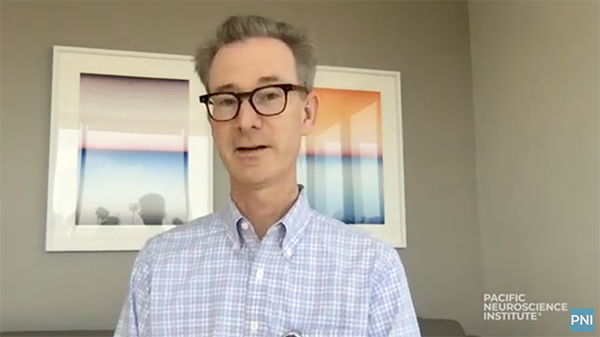 Psychedelic-Assisted Therapy with Ketamine at PNI
Using ketamine in a psychedelic-assisted approach, we treat people 16 years and older who are treatment-resistant or who wish to effectively tackle deep-rooted, unresolved trauma that has not been adequately…
Psychedelic-Assisted Therapy with Ketamine at PNI
Using ketamine in a psychedelic-assisted approach, we treat people 16 years and older who are treatment-resistant or who wish to effectively tackle deep-rooted, unresolved trauma that has not been adequately…
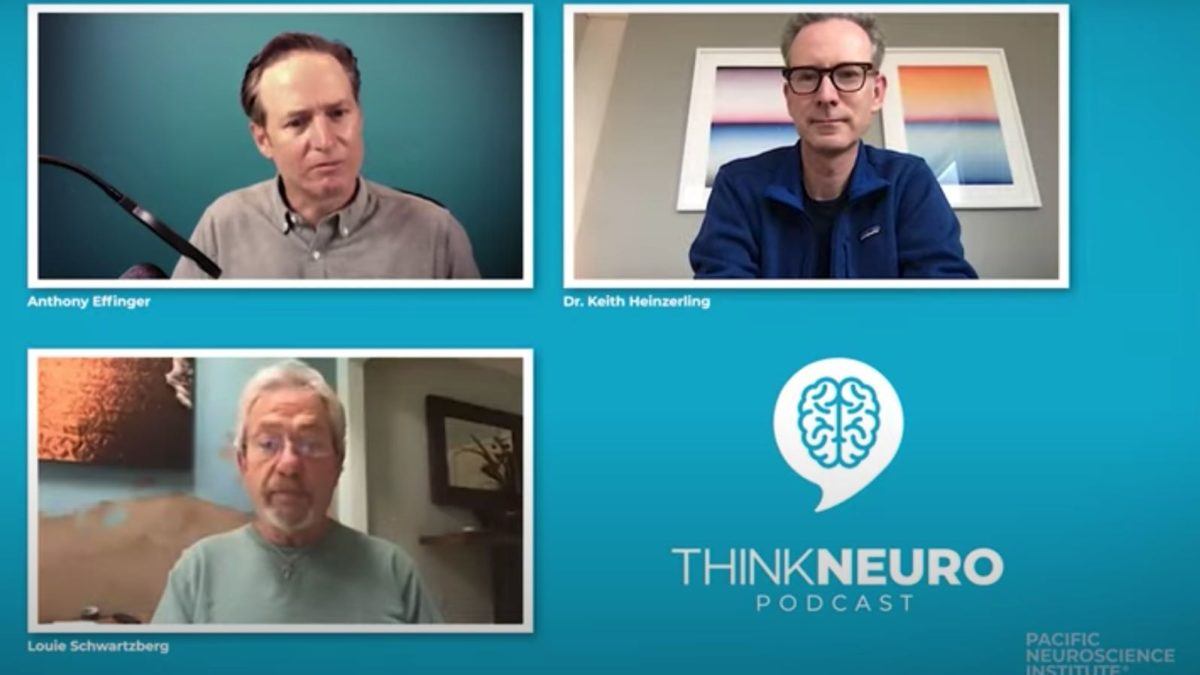 Think Neuro Podcast: The Promise of Psychedelics | Dr. Keith Heinzerling & Louie Schwartzberg
Addiction and depression are two of the most widespread conditions in all of medicine. After decades of research, doctors are still looking for alternatives for when medication and cognitive training…
Think Neuro Podcast: The Promise of Psychedelics | Dr. Keith Heinzerling & Louie Schwartzberg
Addiction and depression are two of the most widespread conditions in all of medicine. After decades of research, doctors are still looking for alternatives for when medication and cognitive training…
 Healing with Visual Art, Music & Mushrooms with Louie Schwartzberg (ft. Deepak Chopra & Dr. Dan Kelly)
https://fungiglobalsummit.com/ Voices from the Underground is The Deep Dive, Intimate Conversations with Thought Leaders & Fungi Experts hosted by Louie Schwartzberg. Get Premium Access and join Louie as he digs…
Healing with Visual Art, Music & Mushrooms with Louie Schwartzberg (ft. Deepak Chopra & Dr. Dan Kelly)
https://fungiglobalsummit.com/ Voices from the Underground is The Deep Dive, Intimate Conversations with Thought Leaders & Fungi Experts hosted by Louie Schwartzberg. Get Premium Access and join Louie as he digs…
 Helping Patients and Advancing Science With a Psilocybin Trial | Karina Sergi, MS, MFT
Helping Patients and Advancing Science With a Psilocybin Trial | Karina Sergi, MS, MFT
 Brain Injuries and Psychedelics
Ian McCall is a former professional MMA fighter who suffered from symptoms of traumatic brain injuries. After retirement, McCall experienced confusion, anger issues, depression, and suicidal ideation. Feeling hopeless, he…
Brain Injuries and Psychedelics
Ian McCall is a former professional MMA fighter who suffered from symptoms of traumatic brain injuries. After retirement, McCall experienced confusion, anger issues, depression, and suicidal ideation. Feeling hopeless, he…
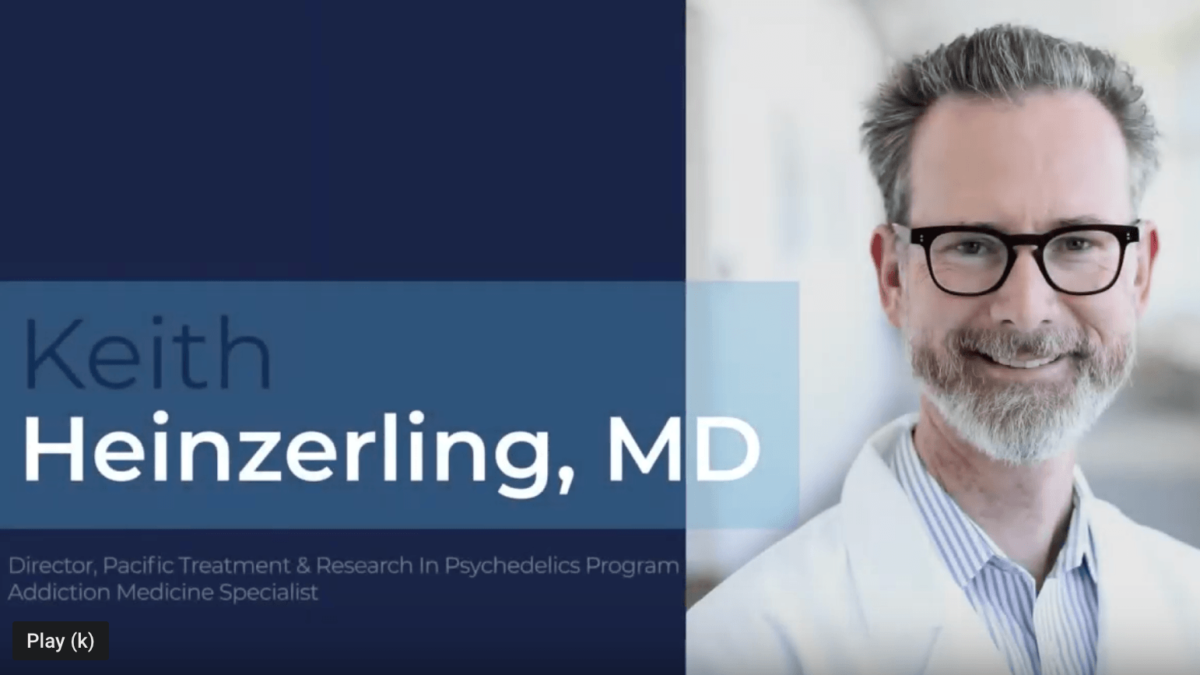 Meet Dr. Heinzerling
Dr. Heinzerling is the Director, Pacific Treatment & Research In Psychedelics Program; Internal Medicine – Addiction Medicine, Brain Health Center. He practices internal medicine and is an addiction medicine specialist…
Meet Dr. Heinzerling
Dr. Heinzerling is the Director, Pacific Treatment & Research In Psychedelics Program; Internal Medicine – Addiction Medicine, Brain Health Center. He practices internal medicine and is an addiction medicine specialist…
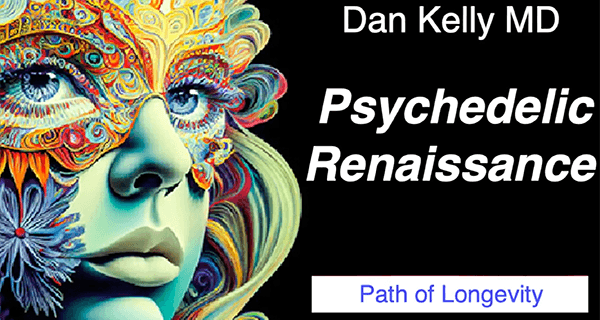 Psychedelics Renaissance | Dr. Daniel Kelly
Dr. Dan Kelly is the director and one of the four co founders of the Pacific Neuroscience Institute, a multispecialty group of over 35 physicians working across nine centers of…
Psychedelics Renaissance | Dr. Daniel Kelly
Dr. Dan Kelly is the director and one of the four co founders of the Pacific Neuroscience Institute, a multispecialty group of over 35 physicians working across nine centers of…
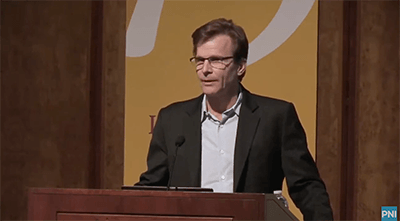 Psychedelic-Assisted Therapy: A New Dawn for Mental Health | Daniel Kelly, MD
Adapted from lecture at Claremont McKenna College Thu, September 16, 2021 Alum, Daniel Kelly, M.D. ’82, a neurosurgeon and neuroscientist, discusses the history, current state and future opportunities of psychedelic-assisted…
Psychedelic-Assisted Therapy: A New Dawn for Mental Health | Daniel Kelly, MD
Adapted from lecture at Claremont McKenna College Thu, September 16, 2021 Alum, Daniel Kelly, M.D. ’82, a neurosurgeon and neuroscientist, discusses the history, current state and future opportunities of psychedelic-assisted…
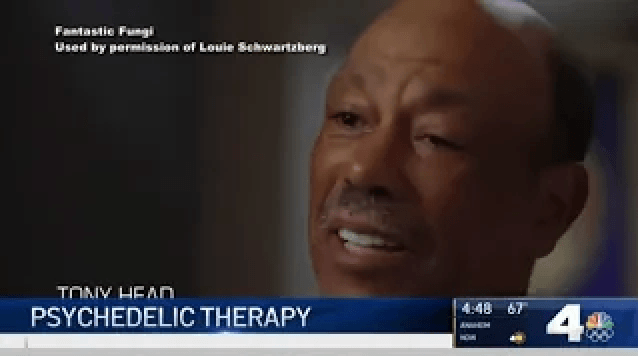 NBC News Features Treatment & Research In Psychedelics (TRIP) at PNI
NBC News features Pacific Neuroscience Institute’s Dr. Daniel Kelly & Dr. Keith Heinzerling, and filmmaker Louie Schwartzberg, and PNI’s groundbreaking psychedelic-assisted clinical trial for alcohol use disorder which launched in…
NBC News Features Treatment & Research In Psychedelics (TRIP) at PNI
NBC News features Pacific Neuroscience Institute’s Dr. Daniel Kelly & Dr. Keith Heinzerling, and filmmaker Louie Schwartzberg, and PNI’s groundbreaking psychedelic-assisted clinical trial for alcohol use disorder which launched in…
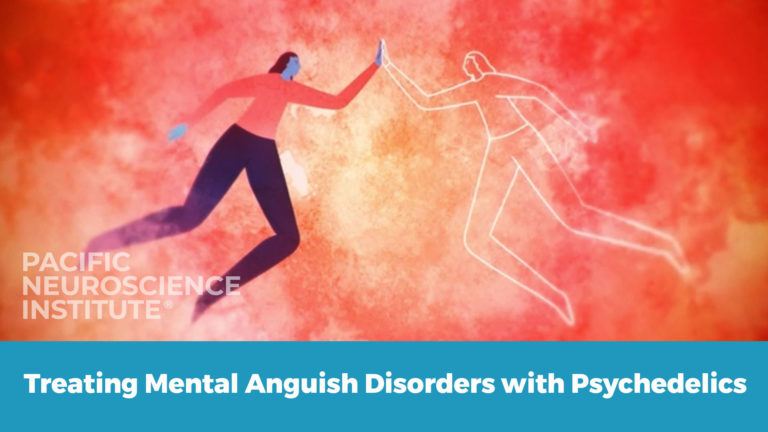
Treatment & Research In Psychedelics (TRIP) at Pacific Neuroscience Institute | Explainer

Psychedelic-Assisted Therapy at Pacific Neuroscience Institute

39. A Life-Changing Clinical Trial with Psychedelics | Vikki’s Grateful Patient Story

Psychedelic-Assisted Therapy with Ketamine at PNI
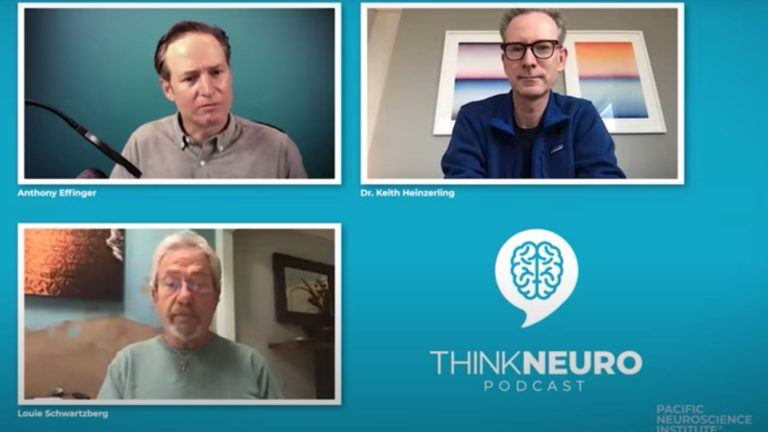
The Promise of Psychedelics | Dr. Keith Heinzerling & Louie Schwartzberg

Healing with Visual Art, Music & Mushrooms with Louie Schwartzberg (ft. Deepak Chopra & Dr. Dan Kelly) | Fungi Global Summit

Helping Patients and Advancing Science With a Psilocybin Trial | Karina Sergi, MS, MFT

Brain Injuries and Psychedelics
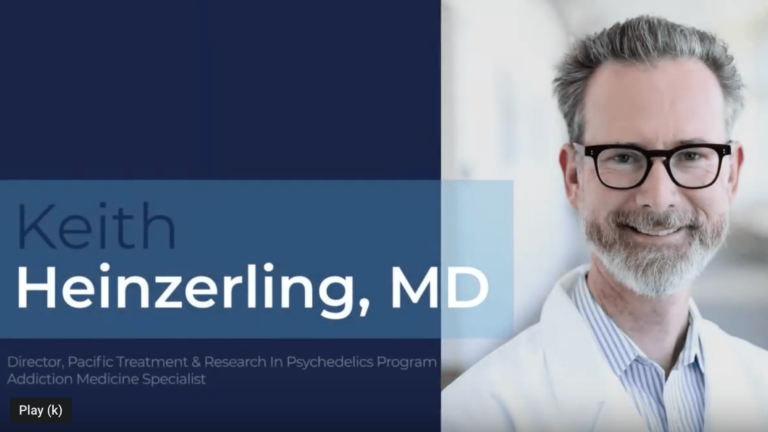
Meet Dr. Heinzerling

Psychedelics Renaissance | Dr. Daniel Kelly

Psychedelic-Assisted Therapy: A New Dawn for Mental Health | Daniel Kelly, MD

NBC News Features Treatment & Research In Psychedelics (TRIP) Program at PNI
Articles about psychedelic-assisted therapy
If you or someone you know is in crisis, call the National Suicide Prevention Lifeline (Lifeline) at 1-800-273-TALK (8255), or text the Crisis Text Line (text HELLO to 741741). Both services are free and available 24 hours a day, seven days a week. The deaf and hard of hearing can contact the Lifeline via TTY at 1-800-799-4889. All calls are confidential. Contact social media outlets directly if you are concerned about a friend’s social media updates or dial 911 in an emergency. Learn more on the Lifeline’s website or the Crisis Text Line’s website.
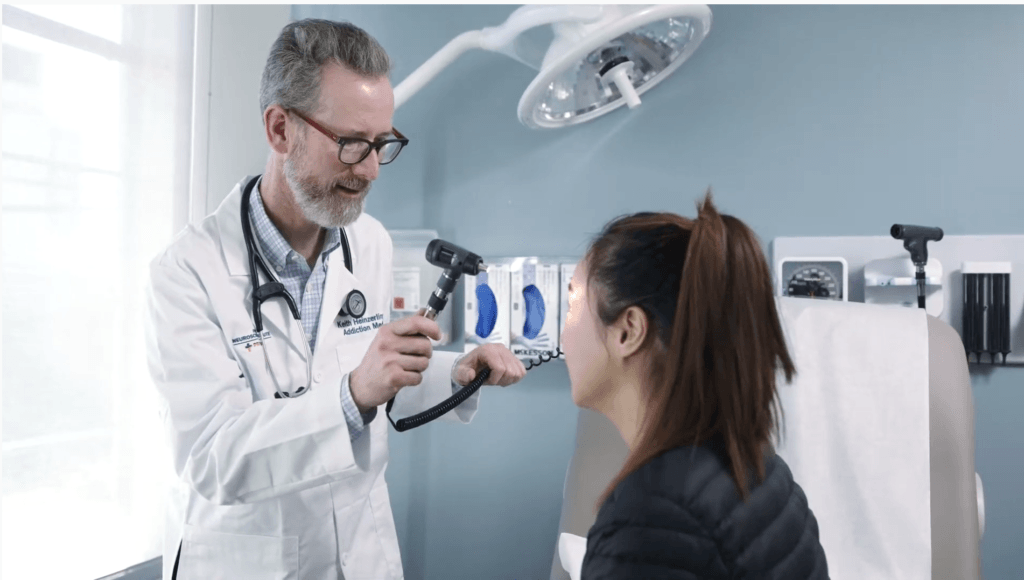
For more information about treatment and research studies at the TRIP program please contact Dr. Heinzerling.
Virtual Video Visits Are Available
Our specialists have consultation openings for new patients anywhere in California.
Treatment with Ketamine: 310-582-7612
Clinical Trials: 310-582-7611


